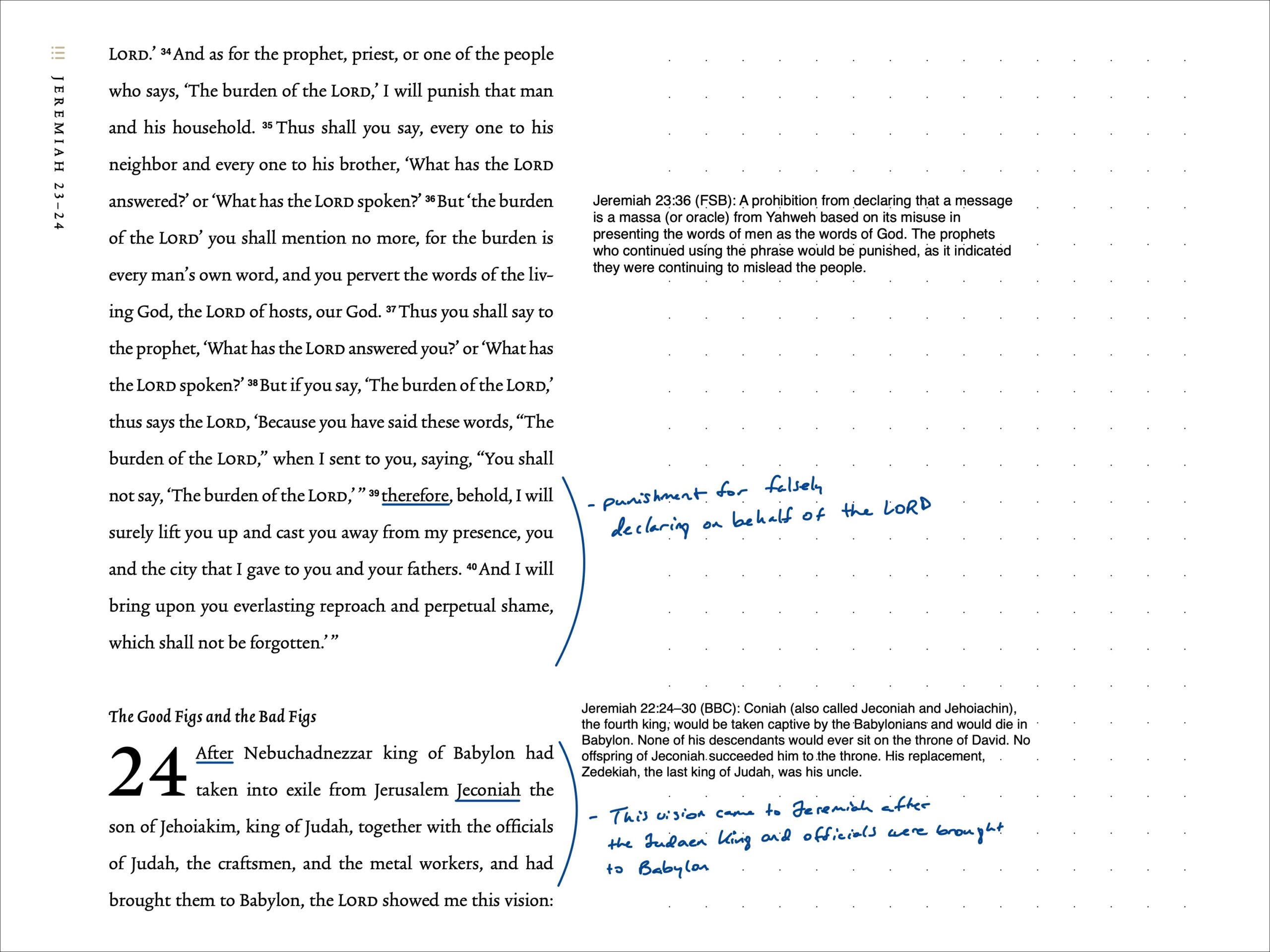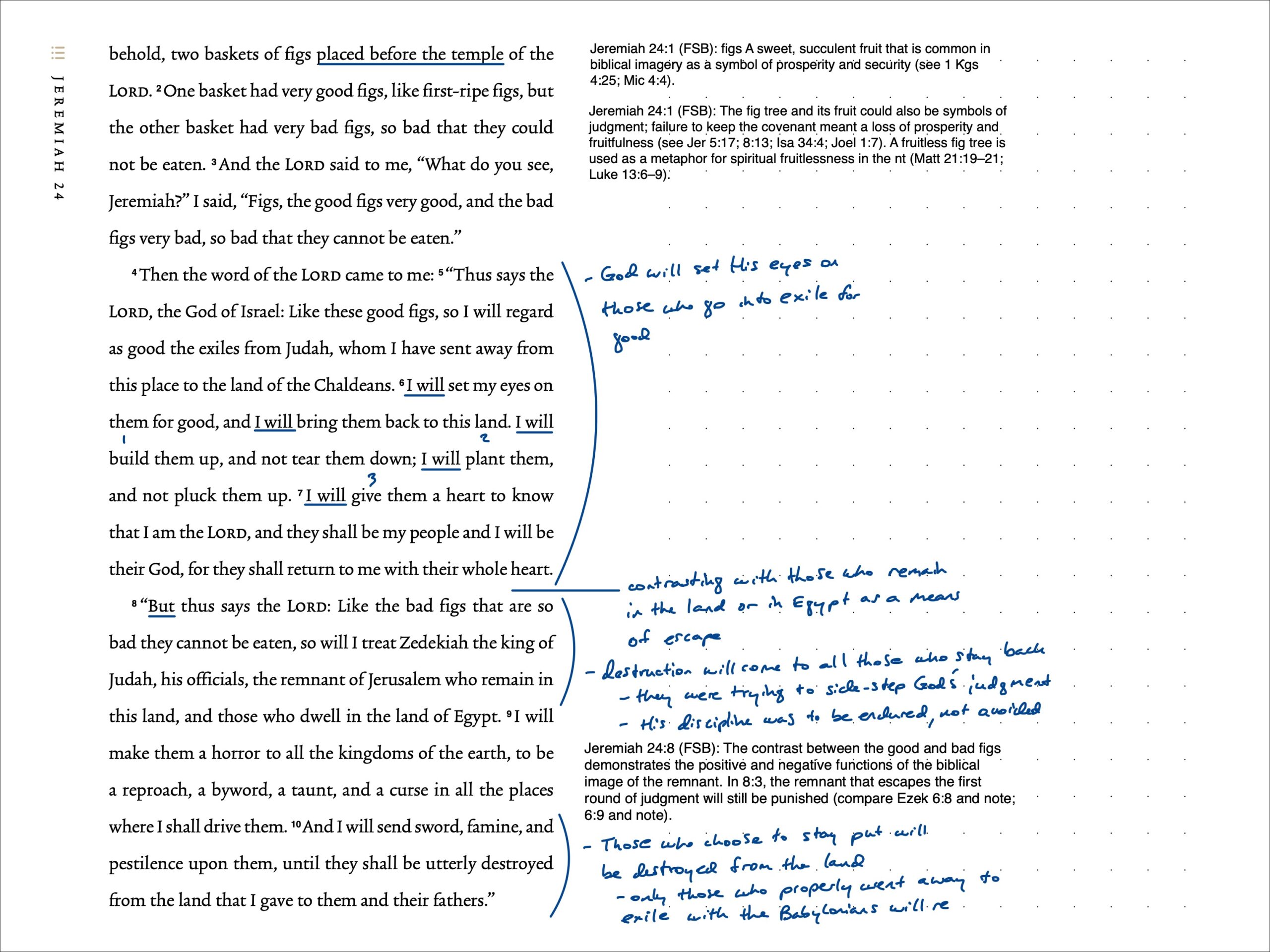| Date | Version | Reading Plan |
|---|---|---|
| @July 16, 2023 | ESV (2016) | ESV Prophets Plan 2023 |
Pericopes
- The good figs and the bad figs
Notes
This short chapter (only 10 verses) opens with a vision given to Jeremiah after Jeconiah, the king of Judah, along with the officials, craftsman and metal workers are taken into Babylon. Jeconiah (also Coniah and Jehoiachin) was captured by the Babylonians where he subsequently died. None of his decedents ever sat on the throne of David. Instead, he was replaced by Zedekiah, his uncle, who was the last king of Judah.
The vision was of two baskets of figs, one with very good figs and one with very bad, placed before the temple (Jer. 24:2-3). Figs are common in biblical imagery as a symbol of prosperity and security (see 1 Kings 4:25; Micah 4:4). It was also used to symbolize judgment, such as failure to keep a covenant and the loss of prosperity and fruitfulness (see Jer. 5:17; Jer. 8:13; Isaiah 34:4; Joel 1:7).
In Jer. 23:4-7, the LORD tells Jeremiah that the good figs represent those who went into Babylonian exile, into the land of the Chaldeans. He said that He will “set my eyes on them for good” and “bring them back to this land”. This remnant will come to know that He is the LORD and shall return to Him with their whole heart.
This is contrasted with the bad figs, which comprise the remaining verses of the chapter (Jer. 23:8-10). These are the people who attempt to remain in the land or escape to Egypt. The description of good and bad figs demonstrates the positive and negative function of the biblical image of the remnant. The remnant that tries to achieve their own protection or salvation will be “utterly destroyed” when God sends “sword, famine, and pestilence upon them” (Jer. 23:10).
Application
God’s people hunkering down or fleeing to Egypt for protection displays the baseness of human nature. Apart from the Spirit’s work of illuminating our hearts to the futility of our efforts, we would all seek salvation on our own terms. Our motivations can be traced back to the garden and the root of all sin: selfishness and the desire to be our own god.
Much like the destruction of the unfaithful remnant of Jeremiah’s day, those who choose their own path will eventually meet its destructive terminus. At that moment, their choices will collide with the eternal consequence of a life lived apart from Christ’s Lordship and security. This is not to fill us with dread but with healthy fear, leading us to recognize and acknowledge that the only Source of lasting protection is our Lord and Savior Jesus Christ.
Scripture Journal Notes
Commentaries & Resources Used
- ESV Study Bible. (Wheaton, IL: Crossway, 2008)
- Faithlife Study Bible (Lexham Press, 2016)
- Believer’s Bible Commentary (Thomas Nelson, 2016)
- CSB Study Bible Notes (Holman Bible Publishers, 2017)
- Matthew Henry’s Commentary on the Whole Bible (Guardian Press, 1976)
- The Bible: A Reader’s Guide (Sterling Publishing, 2011)
- The Infographic Bible (Zondervan, 2018)
- ESV Digital Scripture Journal (Crossway, 2019)

